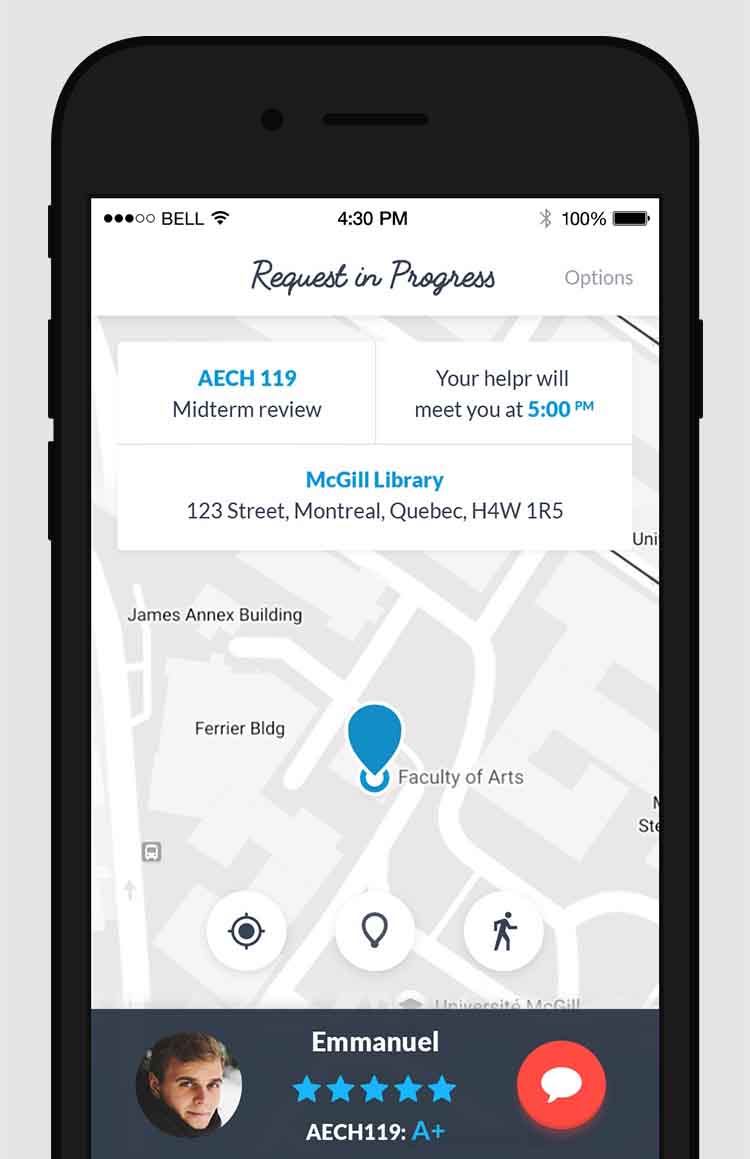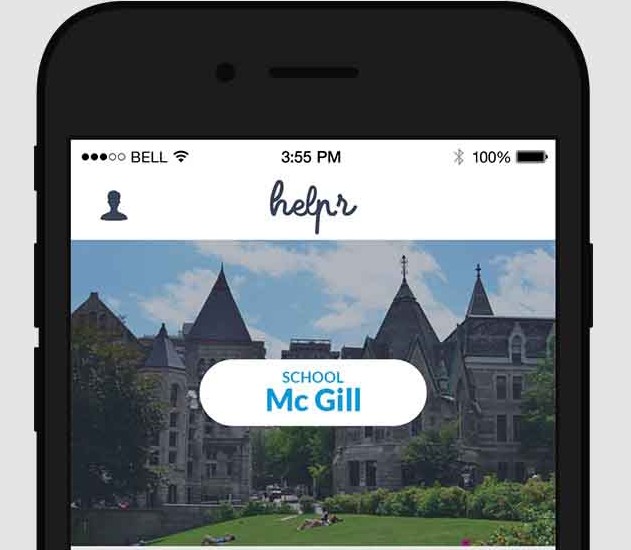Many students looking for a hot date on a Friday night use Tinder. For those looking to boost their GPA, however, the match-making app Helpr will soon be available. Developed by three Montreal natives, Helpr is trying to change the tutoring game.
“We kind of describe it as the anti-tutoring,” Michael Hasenfratz, one of the co-founders, explained. “[There’s] no booking, no scheduling, no requesting the same helpr once or twice, and any student can become a helpr.”
The Helpr concept is similar to Uber. Once students become helprs, they can then list their availabilities and the classes they’re able to help with on the app. This is then accessed by students who are looking for immediate help nearby; all matches are done based on distance. This type of tool works best for students who do most of their work on campus—which is why the team decided to launch their app here at McGill.
“We surveyed Concordia and McGill students, and McGill students […] were much more likely to stay on campus to study,” explained Julien Nolin, another co-founder.
To become a helpr, a student who was successful in a class must take a photo of their transcript as proof, upload it to the app, and enroll to be a helpr. Their application is then reviewed by one of the three founders and if they obtained at least an A- in the course, they’ll be interviewed. If the person meets all of the Helpr standards and requirements, they are approved to start helping others as an official helpr.
“We add them as helprs only in the courses they got As in,” said Hasenfratz. “Even if someone is a [student] and a helpr in business at McGill, they can’t be a helpr in every single course in business unless they’ve [received] an A in those courses.”
This adds to the ‘anti-tutoring’ sentiment that the team is looking to provide with Helpr. For example, a helpr can be used in a situation when, three hours before an assignment may be due, students are stuck on a problem. In a frenzied panic, they can search for the class they need and when they need it (within the next three hours) and the app will show their location on the map. The closest helpr nearby will be notified, and can choose to accept or reject the request.

Tutors are generally for long-term learning, whereas helprs aim to be the quick-fix. This is why helprs also come at a much lower cost.
Helpr offers rates that are lower than normal tutoring services, with a $2.50 base charge and then $0.35 a minute, which averages to about $24 an hour. Today, some tutors offer services at about $60 an hour, making the Helpr price-tag very attractive.
“When I was tutoring, I felt like handling money was always awkward,” Emmanuel Cohen, the third co-founder, explained. “Someone would book you for an hour, and after 35 minutes you realize that ‘that was it’ and then do you ask for change? Do you not ask for change? What’s the rate? We solved that issue by billing by the minute.”
To begin a session, and begin charging fees, both the helpr and the student must agree to start the fee-timer, which prevents Helprs from abusing the system to make money when they’re not actually working.
The app also features the ability to chat with helprs and find specific locations to meet. Following a session, both the helpr and student are prompted to rate their experience with the other person. For helprs, this rating is vital, as a low rating can lead to them no longer being able to be a helpr.
“There’s definitely a negative stigma associated with tutoring,” explained Nolin. “A helpr is a classmate who’s done the work and [is] just here to help you through it.”









